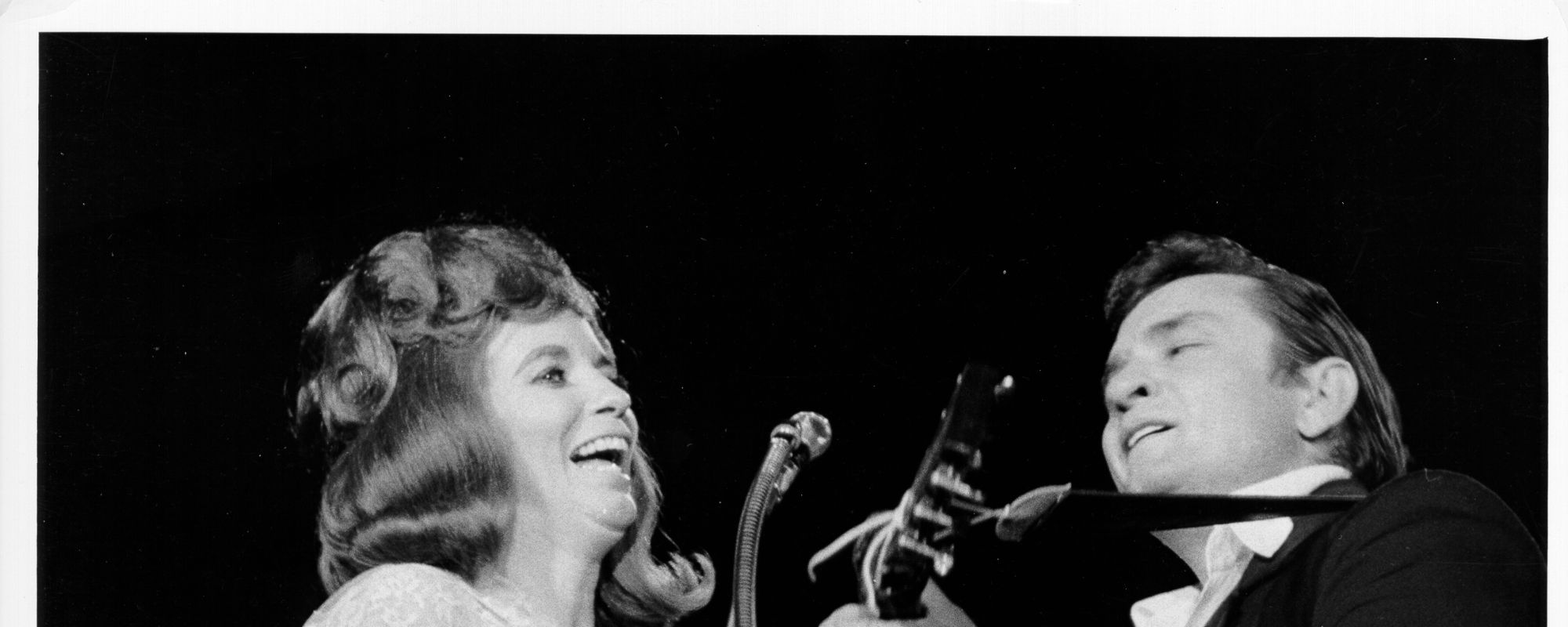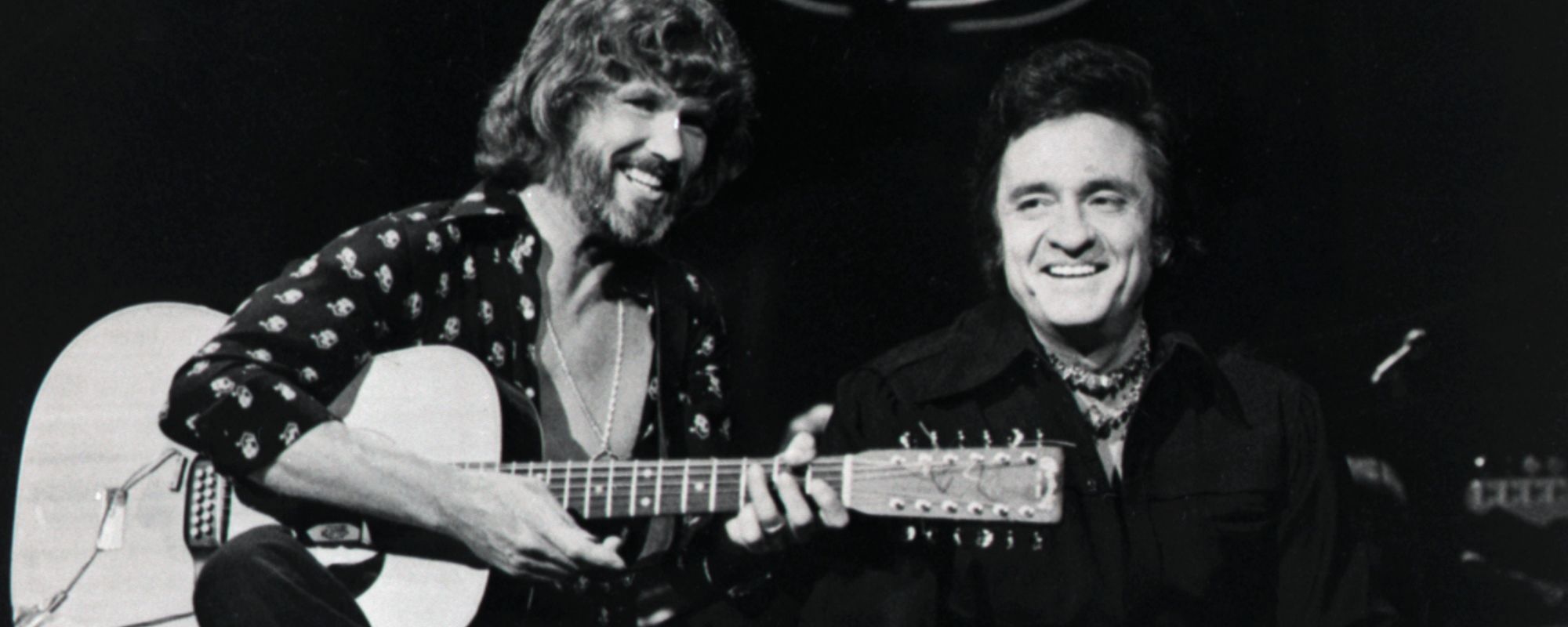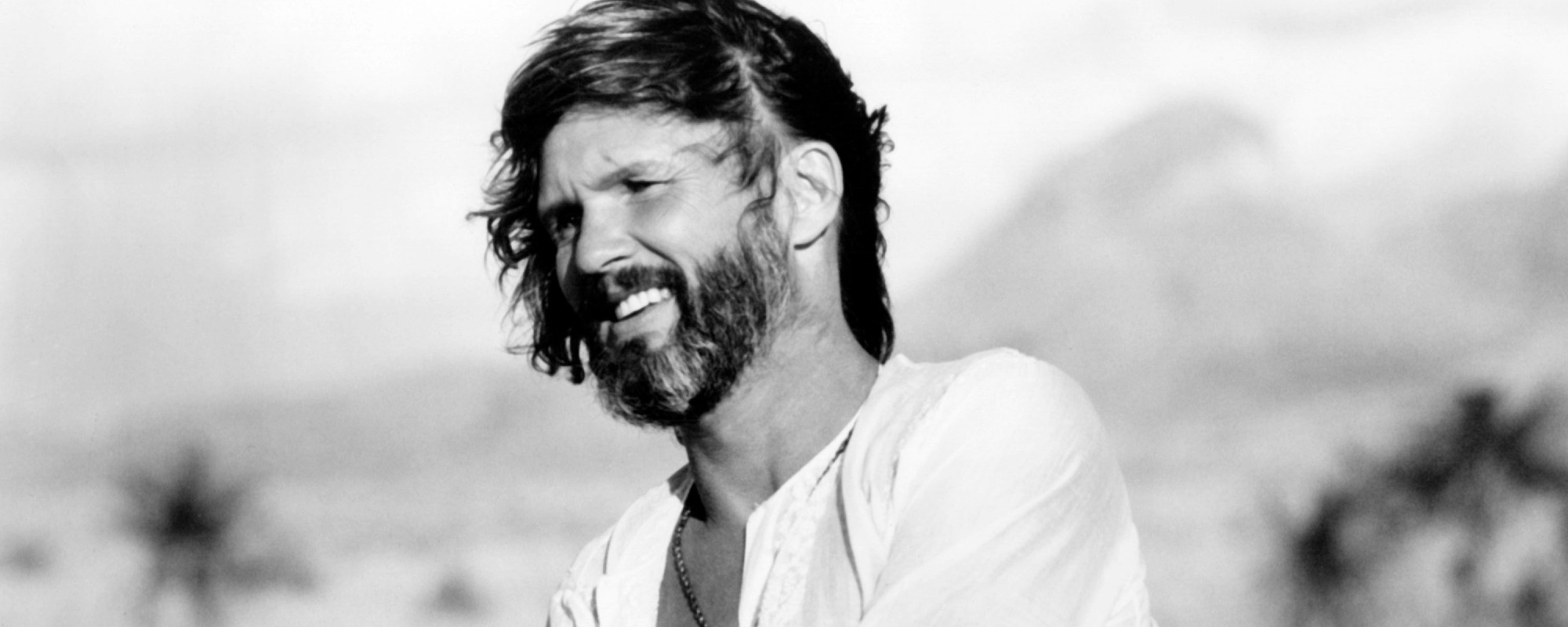Throughout time, plenty of artists recorded or released what would become the final song before their death. Less than one month before his death on New Year’s Day, 1953, Hank Williams released his final single “I’ll Never Get Out of This World Alive.” Though Otis Redding‘s biggest hit, “Sitting On The Dock Of The Bay” was released a month after his death, he finished working on the song, which became his first No. 1 in January of 1968, just three days before he died.
Filled with some of Jim Morrison‘s most ominous prose, and inspired by Stan Jones’ 1948 western-drenched “Ghost Riders in the Sky,” the final song the Doors released—and the last one Morrison recorded with the band before his death on July 3, 1971—”Riders on the Storm” was out in June of ’71.
By ’91, Queen released “The Show Must Go On” just six weeks before the death of Freddie Mercury. Never speak a word again / I will crawl away for good / I will move away from here and Kurt Cobain sings in the final song he recorded with Nirvana, “You Know You’re Right,” which was later released in 2002. Along with his song Dhani, the last song George Harrison wrote and recorded on October 2, 2011, just weeks before his death, was “Horse to the Water.”
All of these last releases and recordings—and many more—left a lasting impression, and messages, within their lyrics, along with these five final songs.
Videos by American Songwriter
[RELATED: 10 Greatest Posthumous Albums]
“Hurt,” Johnny Cash (2002)
Written by Trent Reznor
“It was like someone kissing your girlfriend—it felt invasive,” said Trent Reznor upon first hearing Johnny Cash‘s stirring cover of Nine Inch Nails‘ 1994 hit “Hurt,” originally released on the band’s album The Downward Spiral. Released in 2002 on Cash’s American IV: The Man Comes Around, “Hurt” became his final opus and sendoff. Cash’s graveled voice singing through each line transformed “Hurt” from a thing of pain into something of pure beauty.
I hurt myself today
To see if I still feel
I focus on the pain
The only thing that’s real
The needle tears a hole
The old familiar sting
Try to kill it all away
But I remember everything
What have I become?
My sweetest friend
Everyone I know goes away
In the end
“I listened to it and it was very strange,” said Reznor after hearing Cash’s version. “It was this other person inhabiting my most personal song. I’d known where I was when I wrote it. I know what I was thinking about. I know how I felt.”
After seeing the sepia-tinged music video for “Hurt,” directed by NIN collaborator Mark Romanek, all the pieces fell in place and Cash’s version made more sense to Reznor. Interspersed with older footage of Cash, the video cuts to him sitting in an empty room playing his guitar and at the piano. “It really, really made sense and I thought what a powerful piece of art,” added Reznor. “I never got to meet Johnny but I’m happy I contributed the way I did. It felt like a warm hug. I have goosebumps right now thinking about it.
Cash even said the “Hurt” sounds like a song he would have written in the ’60s. “Having Johnny Cash, one of the greatest singer-songwriters of all time, want to cover your song, that’s something that matters to me,” said Reznor. “It’s not so much what other people think but the fact that this guy felt that it was worthy of interpreting.”
“Keep Me In Your Heart,” Warren Zevon (2003)
Written by Warren Zevon and Jorge Calderón
Mortality was a theme across Warren Zevon‘s twelfth and final album The Wind in 2003 with emotional and confessional songs like “Dirty Times and Life,” “Disorder in the House” and his cover of Bob Dylan‘s “Knockin’ on Heaven’s Door.” Closing the album, “Keep Me In Your Heart” was the last song Warren Zevon wrote and recorded before dying of mesothelioma on September 7, 2003, at 56. By the time Zevon got around to the song, his health had deteriorated and he recorded “Keep Me in Your Heart” using a makeshift studio at his home.
Zevon’s lyrics mirror his state of mind at the time while living with his cancer diagnosis and enjoying what time he had left.
Shadows are fallin’ and I’m runnin’ out of breath
Keep me in your heart for a while
If I leave you it doesn’t mean I love you any less
Keep me in your heart for a while
When you get up in the mornin’ and you see that crazy sun
Keep me in your heart for a while
There’s a train leavin’ nightly called “When All is Said and Done”
Keep me in your heart for a while
Keep me in your heart for a while
Despite his waning health, Zevon continued to promote The Wind until he couldn’t any longer, including his final appearance on the Late Show with David Letterman.
“I have a form of lung cancer that spread—it means you better get your dry cleaning done on special,” joked Zevon on Letterman. “They certainly don’t discourage you from doing whatever you want,” added Zevon on making The Wind throughout his illness. “It’s not like bed rest and a lot of water will straighten you out.”
Along with the interview, Zevon also performed “Mutineer,” the title track from his 1995 album, and “Genius,” My Ride’s Here in 2002.
Zevon called Letterman “the best friend my music has ever had.” Before the show, Zevon gifted Letterman with his guitar while they chatted in the dressing room, bringing the host to tears.
“Here’s a guy who had months to live and we’re making small talk,” said Letterman. “And as we’re talking, he’s taking his guitar strap and hooking it, wrapping it around, then he puts the guitar into the case and he flips the snaps on the case and says, ‘Here, I want you to have this, take good care of it.’”
Letterman added, “And I just started sobbing. He was giving me the guitar that he always used on the show. I felt like, ‘I can’t be in this movie, I didn’t get my lines.’ That was very tough.”
Despite doctors’ predictions, Zevon went on to live 11 more months, enough time to enjoy the release of The Wind, and the birth of his two grandchildren.
“You Want It Darker,” Leonard Cohen (2016)
Written by Leonard Cohen
Just 17 days before his death on November 7, 2016, Leonard Cohen released his final album, You Want It Darker, and described its opening title track as a “hypnotic groove” and added, “The surprise of a great synagogue choir. An unflinching exploration of the religious mind.” Produced by his son Adam and released when Cohen was 82, You Want It Darker circles around some of his recurring themes, of God, life and death, sexual desire, and regrets.
Featuring the voices of Cantor Gideon Zelermyer and the Shaar Hashomayim Synagogue Choir from Montreal, religion is the focal point of its title track with Cohen singing Hineni, Hineni / I’m ready, my Lord, a Hebrew call to God.
“’Hineni’ literally means ‘Here I am,’” said Zelermyer of the lyric. “I’m too young to know everything about Leonard, but I know he does not use words without purpose.”
Zelemyer continued, “In this case, I think ‘Hineni’ is more a reference to Leonard as someone trying to come to an understanding with God, someone reckoning with final tallies in the Book of Life—’Here I am. I am ready.’”
If you are the dealer, I’m out of the game
If you are the healer, it means I’m broken and lame
If thine is the glory, then mine must be the shame
You want it darker
We kill the flame
Magnified, sanctified
Be the holy name
Vilified, crucified
In the human frame
A million candles burning
For the help that never came
You want it darker
Hineni, hineni
I’m ready, my Lord
In 2018, Cohen won a posthumous Grammy for Best Rock Performance for “You Want It Darker.”
“Lazarus,” David Bowie (2016)
Written by David Bowie
Look up here, I’m in heaven. David Bowie wrote many striking, provocative, and otherworldly lyrics within his time on earth, but none were as poignant as some of the last on his final album Blackstar. Released two days before his death at 69 on January 10, 2016, “Lazarus” became the final single released by Bowie within his lifetime. In his lyrics, Bowie talks about death and what will happen afterward.
Look up here, I’m in heaven
I’ve got scars that can’t be seen
I’ve got drama, can’t be stolen
Everybody knows me now
Look up here, man, I’m in danger
I’ve got nothing left to lose
I’m so high, it makes my brain whirl
Dropped my cell phone down below
Ain’t that just like me?
By the time I got to New York
I was living like a king
There I used up all my money
I was looking for your ass
This way or no way, you know I’ll be free
Just like that bluebird now, ain’t that just like me?
Oh, I’ll be free, just like that bluebird
Oh, I’ll be free, ain’t that just like me?
Despite his illness, producer and longtime collaborator Tony Visconti said Bowie was “a man on top of his game” and shared the isolated vocals from their “Lazarus” sessions. “When he recorded ‘Blackstar,’ when he knew that his time could be limited, it didn’t stop his sense of humor in any way,” said Visconti. “He was still very open and friendly. He told everyone, ‘I can’t come to the studio every day for medical reasons.’ But he was still happy as anything to be in the studio.”
“Adios,” Glen Campbell (2017)
Written by Jimmy Webb
Glen Campbell shared his 67th and final album Adiós two months before his death on August 8, 2017. The title track was originally written by friend and longtime collaborator Jimmy Webb for Linda Ronstadt‘s 1989 album Cry Like a Rainstorm, Howl Like the Wind, and was always a favorite of Campbell’s. “Glen and I used to play that song all the time,” recalled Webb. “We played it in dressing rooms, hotels. We played it over at his house, we played it at my house. He always loved that song.”
On Adiós, it was the closing track and a fitting “goodbye” from the country maestro, who died from complications from Alzheimer’s disease at 81.
Don’t think that I’m ungrateful
And don’t look so morose
Adiós, adiós
We never really made it baby
But we came pretty close
Adiós, adiós
Going up north where the hills are wintergreen
I got to leave you on the California coast
Going where the water’s clear and the air is cleaner
Than the California Coast
Our dreams of endless summers
They were just too grandiose
Adiós, adiós
“I stood right beside him on every line, printed out the lyrics in big print,” said Adiós producer Carl Jackson, a former member of Campbell’s band from 1972 through ’82, on their session for the title track. “Sometimes we had to do a line at a time because with Alzheimer’s, his memory of the lyrics, as we saw in the tour he had to use teleprompters, that went away pretty quick.”
He added, “But his melodies did not go away for a long time after his ability to remember actual songs. He would even remember what keys he did them in. I can’t explain it.”
Photo: Warren Zevon at The Omni in Oakland, CA on November 2, 1990. (Clayton Call/Redferns)













Leave a Reply
Only members can comment. Become a member. Already a member? Log in.